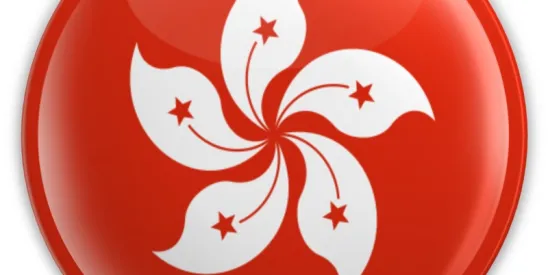Hong Kong’s well-established financial market, low taxation incentives, and laissez-faire policies have consistently earned the city the title of the World’s Freest Economy and the third easiest place to do business in. Yet, the city’s on-going social movements seem to be having an influence on its financials. Hong Kong reported a GDP contraction of 2.9% year-on-year in the third quarter of 2019 and insurance claims related to the social movements have also reached US$76.5 million. Nonetheless, Hong Kong’s economic competitiveness remains impregnable and was ranked 3rd in the Global Competitiveness Report in 2019. Consequently, there is an optimistic attitude towards the financial and economic future of Hong Kong.
What issues are businesses facing?
Hong Kong’s core industries, retail and tourism sectors in particular, are materially affected by the recent social movements. A decline of 19.5% in total retail sales and significant plunges in revenues in the food and beverage sector have led to the closing of more than 200 restaurants in the span of four months. This could be attributable to the dip of 34.2% in September in arrivals as the tourism industry takes a hit.
What measures are in place to help businesses?
Government’s Full Package of Measures to Support Businesses
The Hong Kong Government had announced initiatives to assist heavily-impacted sectors during the economic downturn involving more than HK$25 billion last year and this year. In the tourism sector, the government will be providing eligible travel agencies incentive payments of up to HK$60,000 between November 2019 and March 2020 based on the number of visitors or travelers they serve. Additionally, the transport sector is expected to benefit from a six-month fuel subsidy being offered to more than 180 public transport operators and 61,000 taxi and minibus drivers.
The government has also put specific measures in place to aid small and medium-sized enterprises (SMEs). SMEs who tenant at government business premises will be offered a 50 percent rent reduction for 6 months and hire charges of facilities of civic centers managed by the government will also be reduced by 50 percent for a similar 6-month period. The Monetary Authority has also adjusted its requirements on banks and offered an addition of HK$200-$300 billion available for lending. In August 2019, the government announced a new round of enhancement measures to the Dedicated Fund on Branding, Upgrading and Domestic Sales (BUD Fund) and the SME Export Marketing Fund which includes an increase in cumulative funding ceiling per enterprise to HK$4 million in order to provide an additional fund injection to support the growth of various SMEs
Economic Relief from Hong Kong’s Business Magnate
One private sector established charitable foundation alone has extended a helping hand to around 28,000 SMEs through the introduction of the Crunch Time Instant Relief Fund, which granted each SME cash grants of HK$25,000 – HK$60,000 in donations.
How are businesses and markets responding?
A rise in insolvency and bankruptcy cases might be expected due to the current social movements, however, this is not the case. Statistics from the Official Receiver’s Office in 2019 indicate a drop of 480 bankruptcy and winding-up orders compared to the previous year. Surprisingly, the performance of the financial market in 2019 was better than that of the previous year.
In spite of experiencing a bleak summer where initial public offering (IPO) plans have been put on hold by various companies, Hong Kong does not show any signs of weaknesses as one of the major international financial centers. The Hang Seng Index, a main indicator of the Hong Kong Stock Exchange’s (HKEX) performance, shows an increase of 9.1% despite the volatility of the economy. The HKEX concluded the year by surpassing rival stock exchanges in the U.S. and Mainland China with the secondary listings of the Chinese technology giant Alibaba and the IPO by Budweiser’s Asia Pacific branch.
The history of catastrophic events in Hong Kong such as the Severe Acute Respiratory Syndrome (SARS) in 2003 and the Financial Crisis in 2008 denoted the city’s capability to withstand such adversities. These events demonstrated the city’s competence to overcome economic recessions in a swift manner. Given the ability of the city to recover, the economic future of Hong Kong is positive.
Options for a business facing insolvency
In planning for the event of insolvency, these are the most commonly used reliefs for creditors in Hong Kong:
Winding Up/Liquidation
Liquidation procedures are the most commonly used method when businesses decide to wind up in Hong Kong. Pursuant to section 228 of the Companies (Winding-Up and Miscellaneous Provisions) Ordinance (Cap. 32), shareholders may voluntarily file a petition for bankruptcy by reason of the occurrence of a terminating event or by will. If the company cannot continue its businesses due to its liabilities, it can be wound up by a special resolution.
As defined under section 177 (1)(d), creditors of the company are also entitled to file a compulsory winding-up petition if creditors find the company unable to repay its debts. Inability to pay debts refers to the situation that the creditor has served a statutory demand on the company to pay the sum due and that the company failed to pay within 3 weeks.
Scheme of Arrangements
A scheme of arrangements is a statutory mechanism where the company experiencing financial difficulties can seek to compromise its debts. A Scheme of Arrangements could be applied to the Court under session 673 of the Companies Ordinance (Cap. 622). The distressed company needs to propose a scheme of arrangements to its creditors and gain their approval to successfully apply for a Court order. When the scheme has been compromised, creditors are bound to accept a discounted amount of debt per the Court’s decision.
Seek professional assistance if needed
Unlike the U.S., Hong Kong lacks a formal insolvency process that provides a moratorium to protect a financially distressed company against its creditors.
In the U.S., struggling companies can take advantage of the automatic stay and debtor in possession proceedings available under Chapter 11 of the Bankruptcy Code. The automatic stay stops all collection activities by creditors immediately once the debtor files for bankruptcy and allows the debtor to decide how they repay debts to their creditors whilst retaining control of and continuing to run their businesses under court oversight.
Restructuring and insolvency can be complicated requiring professional assistance from solicitors to formulate a comprehensive provisional liquidation plan as well as to serve as an intermediary between debtors, creditors, and courts.
Conclusion
The challenges faced by the Hong Kong economy showcase its resilience to social and financial pressures. With a number of measures in place to support businesses those should ensure that the economy remains stable in 2020, but for a business facing financial distress the earlier that it seeks advice about restructuring its business the better chance it will have to survive any downturn in the economy.




 />i
/>i
